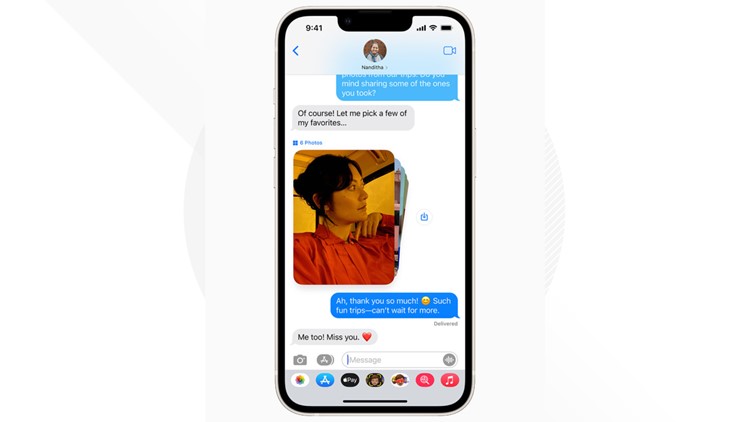ST. PETERSBURG, Fla. — Green with envy?
The Wall Street Journal reported over the weekend American teens may be feeling just that while messaging friends and family in their social circle. Maybe you've felt it, too, texting blue bubbles back and forth and then, suddenly, green. Maybe you've said, "ugh, green," too.
That reaction is nothing out of the ordinary for many of the teens and college-aged students who spoke with the outlet. Others said they've been singled out and considered totally unworthy after switching from Apple's iPhone to the Android competition.
iPhones come preloaded with Apple's iMessage app, which the company positions as the easiest way to share texts, photos, videos, animated emoji and more. Texting someone with an Android phone is allowed, sure, but very few of the iPhone-to-iPhone messaging features don't work with an Android device in the mix.
Not wanting to feel left out, young Americans have made iMessage and its blue texts a status symbol of sorts and helped drive Phone market share to an estimated 74 percent among people aged 18-24, according to the WSJ.
Following the report, Android head Hiroshi Lockheimer tweeted there's a way to fix what he called "a documented strategy" on the part of Apple to keep users locked into the iPhone ecosystem. "Using peer pressure and bullying as a way to sell products is disingenuous for a company that has humanity and equity as a core part of its marketing," he continued.
As The Verge points out, internal Apple emails among executives revealed during last year's trial with Epic Games showed the company considered making iMessage on Android but ultimately concluded it would "hurt us more than help us," as one leader wrote.
Lockheimer later called upon Apple to embrace a newer texting standard called RCS, or Rich Communication Services messaging, which would have many — but not all — of the same features supported by iMessage regardless of device.
"By not incorporating RCS, Apple is holding back the industry and holding back the user experience for not only Android users but also their own customers," Lockheimer said.
Google itself has tried and failed in its own initiatives, Ars Technica writer Ron Amadeo said on Twitter, rolling out 13 separate messaging apps since iMessage was launched in 2011.
In a statement to the WSJ, Apple indicated its users may be quite content with what they have.
"We know that Apple users appreciate having access to innovative features like iCloud synching across all their Apple devices, Tapback and Memoji, as well as industry-leading privacy and security with end-to-end encryption—all of which make iMessage unique," Apple said in the statement.



